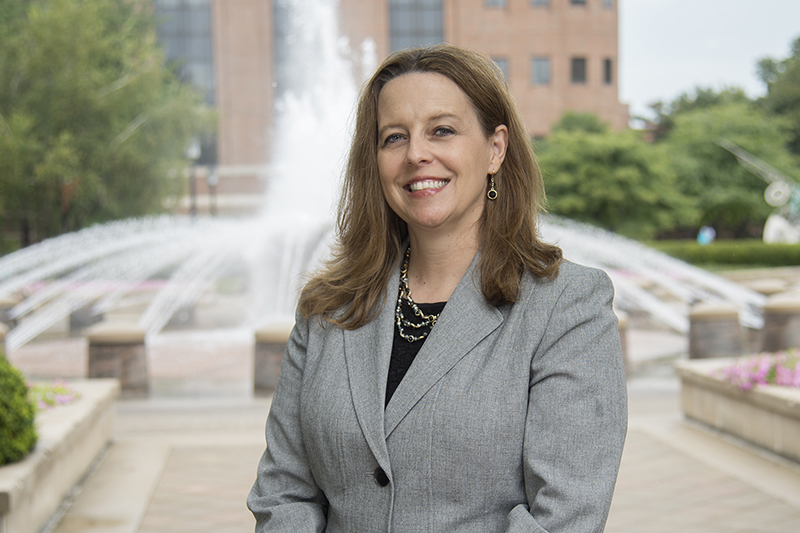August 31, 2016
Purdue Profiles: Carla C. Johnson
 Carla C. Johnson, associate dean for research, engagement and global partnerships in the College of Education. (Purdue University photo/Mark Simons)
Download image
Carla C. Johnson, associate dean for research, engagement and global partnerships in the College of Education. (Purdue University photo/Mark Simons)
Download image
It was work as a sports editor at a small newspaper that pushed Carla C. Johnson toward her passion in education and her work with STEM (science, technology, engineering and math) learning at Purdue.
Johnson came to Purdue's College of Education in 2013 as a professor of science education. She now works as associate dean for research, engagement and global partnerships, involved in overseeing grants and research awards, developing partnerships with schools and promoting globalization activities.
She has taken part in a number of projects, including lead researcher for the Department of Defense AEOP portfolio with $185 million in STEM programs, and serving as editor of the book, "STEM Road Map: A Framework for Integrated STEM Education."
What prompted your interest in education?
I actually started out in pre-law because my father and grandfather were attorneys. Then I had an opportunity to be a sports editor for a local newspaper. Going to schools for the newspaper and being around youth made me realize how much I enjoyed education and how much I wanted to be involved in teaching. That experience made me decide to change my degree.
I was a science teacher for six years in sixth through ninth grades, but as I looked around, a lot of teachers were turning students off to learning by the traditional way they were teaching science. The way things are in schools today, because funding can be so slim, once teachers get out in the field they have very few opportunities for professional growth. I've devoted my career to research in this area and either getting funding to get new resources for teachers or finding ways to connect them with resources that are already out there along with improving the opportunities for students as well.
Why did STEM education become your focus?
You think about how the focus in the classroom has changed. It's more about acquiring knowledge now rather than problem solving and communicating ideas, which are important skills to have when you get out in the workforce. No matter the job, you need to be able to communicate and think critically about the world. I had a couple of large grants from the Institute of Education Sciences to work with districts in Utah several years back. One of the things we included in the science professional development intervention was to have elementary school students write a journal entry each day to reflect on what they learned. The teachers in the program were really concerned. One teacher raised her hand and said, "If we do this now, we'll have to teach them how to think." When she said that, I thought, "Oh, we're doing so many things the wrong way in schools."
My work has been to try to give kids authentic opportunities to apply information as they're learning it through the context of real-world STEM problems. The whole focus of the work I do is to infuse 21st-century skills and opportunities into education so students can actually explore things in a problem-based learning setting so they can gain some of those skills an employer and colleges believe are important to being successful in the workforce.
Why pursue your goals for education at Purdue?
I decided to come to Purdue University because I truly believe we are at the cutting edge of work in STEM education and have a unique opportunity to provide leadership globally in this arena. We have close to 30 schools that the College of Education works with one-on-one to try to do something in STEM. That's the whole gamut from early childhood all the way up through high school.
Recently, I was in San Jose, California, and did a keynote talk for a 1,000 teachers in a large school district. I looked out in the audience and many have our "STEM Road Map" book and they have notes in it and highlighted parts. That was one of the most powerful things for me to experience. When you write a book you never really know if people will decide to use them. To go out and see people adopting it for their whole district or across the state of California was pretty powerful and affirming.
Writer: Brian L. Huchel, 765-494-2084, bhuchel@purdue.edu
